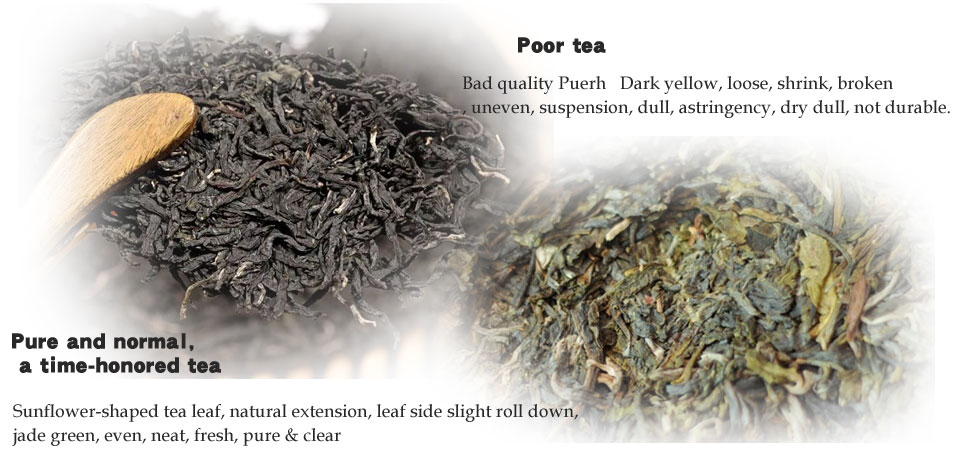This blog post will provide a detailed breakdown of the costs associated with hiring a domestic helper in Singapore and offer tips on budgeting for this expense.from sg maid agency From the reference value, it can also bring a lot of inspiration to other industries. https://1achieve.net
ESSENTIAL KNOWLEDGE
Bryan
7/27/20247 min read
Breakdown of Costs
1. Agency Fees
Most employers in Singapore hire domestic helpers through licensed employment agencies. These agencies charge a fee for their services, which can vary widely depending on the agency and the services provided.
Initial Agency Fees: These fees typically range from SGD 1,000 to SGD 3,000 and cover services such as sourcing candidates, conducting interviews, arranging medical examinations, and processing work permits.
Replacement Fees: If the hired helper does not meet expectations or leaves before the contract ends, some agencies offer a replacement service, which may incur additional costs.
When selecting an agency, consider its reputation, services offered, and fee structure. Reputable agencies often provide comprehensive services that include post-placement support, which can be valuable in ensuring a smooth employment relationship.
2. Salary
The monthly salary of a domestic helper depends on factors such as nationality, experience, and the specific duties required. Here are the average salary ranges for FRESH and some Experienced Helpers:
Filipino Helpers: SGD 600 to SGD 700
Indonesian Helpers: SGD 550 to SGD 650
Myanmar Helpers: SGD 450 to SGD 550
These figures can vary based on the helper’s experience and skill level. It¨s important to agree on a fair salary that meets both parties’ expectations. Additionally, consider offering performance-based incentives or bonuses to motivate and reward your helper for excellent work.
3. Monthly Levy
The Ministry of Manpower (MOM) imposes a monthly levy on employers of foreign domestic workers. The levy amount depends on the household’s specific needs:
Standard Levy: SGD 300 per month
Concessionary Levy: SGD 60 per month (for households with young children, elderly members, or disabled family members)
To qualify for the concessionary levy, employers must meet certain criteria set by MOM, such as having a child below 16 years old or an elderly family member aged 67 and above. Click on this LINK to find out more.
4. Medical Insurance and Security Bond
Employers are required to purchase medical insurance and provide a security bond for their domestic helpers.
Medical Insurance: A minimum coverage of SGD 15,000 per year for inpatient care and day surgery is required. This can cost between SGD 150 and SGD 300 annually.
Security Bond: A SGD 5,000 security bond (for non-Malaysian helpers) acts as a financial guarantee to the Singapore government. This bond can be in the form of insurance, which typically costs around SGD 50 to SGD 80 per year.
Ensuring comprehensive medical insurance coverage can provide peace of mind, as it covers hospitalization and surgical expenses that may arise during the helper¨s employment.
5. Settling-In Programme (SIP)
The Settling-In Programme is mandatory for first-time helpers and employers. The one-day course costs SGD 75 and is designed to educate both parties on safety, rights, and responsibilities.
The SIP includes:
Workplace Safety: Training on how to handle household equipment safely and avoid accidents.
Cultural Orientation: Helping helpers adapt to the cultural norms and practices in Singapore.
Rights and Responsibilities: Educating both parties on their legal rights and obligations.
6. Food and Accommodation
Employers must provide adequate food and suitable living conditions for their domestic helpers. The estimated monthly cost for food is around SGD 200 to SGD 300, depending on dietary needs. Accommodation costs can vary based on the living arrangements provided.
Food: Ensure the helper has access to nutritious meals that meet her dietary requirements. Some employers choose to provide groceries, while others give a food allowance.
Accommodation: Provide a private room or a suitable sleeping area that offers privacy and comfort. The room should be well-ventilated and equipped with basic amenities.
7. Annual Medical Check-Up
Helpers are required to undergo an annual medical examination to ensure they are fit for work. The cost of this check-up ranges from SGD 80 to SGD 150.
The annual check-up includes:
General Health Screening: Assessing overall health and detecting any medical issues.
Infectious Disease Testing: Ensuring the helper is free from infectious diseases that could pose a risk to the household.
8. Other Expenses
Training: Some employers invest in additional training for their helpers, such as cooking or childcare courses. These can range from SGD 100 to SGD 500.
Miscellaneous Costs: These include work-related tools, toiletries, and transportation expenses for the helper.
Investing in training can enhance the helper¨s skills and improve the quality of service provided. Additionally, ensuring that the helper has access to necessary work tools and personal items can contribute to her overall well-being and job satisfaction.
Tips on Budgeting for a Domestic Helper
1. Calculate Total Monthly Expenses
When budgeting for a domestic helper, it¨s essential to calculate the total monthly expenses. Include the helper¨s salary, monthly levy, food, accommodation, and any other recurring costs. This will give you a clear picture of the monthly financial commitment.
For example, if you hire an Indonesian helper with a salary of SGD 600 and qualify for the concessionary levy of SGD 60, your monthly expenses might look like this:
Salary: SGD 600
Levy: SGD 60
Food: SGD 250
Accommodation: SGD 100 (if providing a private room incurs additional utility costs)
Medical Insurance: SGD 25 (annual cost divided by 12)
Total Monthly Expense: SGD 1,035
2. Plan for One-Time Costs
Factor in one-time costs such as agency fees, initial medical examinations, and the Settling-In Programme. These expenses can add up, so it¨s important to plan for them in advance.
For example:
Agency Fees: SGD 2,000
Initial Medical Examination: SGD 100
Settling-In Programme: SGD 75
Total One-Time Cost: SGD 2,175
3. Set Aside an Emergency Fund
It¨s wise to set aside an emergency fund to cover unexpected expenses, such as medical emergencies or early termination of the helper¨s contract. This fund can provide financial security and peace of mind.
Consider setting aside a few months’ worth of the total monthly expense as an emergency fund. For instance, having an emergency fund of SGD 3,000 can cover approximately three months of expenses.
4. Consider Concessionary Levy Eligibility
If you have young children, elderly, or disabled family members, check if you qualify for the concessionary levy. This can significantly reduce your monthly expenses.
To apply for the concessionary levy, submit the necessary documents to MOM, such as the birth certificate of a child or medical certification for an elderly family member.
5. Review Insurance Options
Compare different insurance providers to find the best coverage at a reasonable price. Ensure that the medical insurance and security bond meet MOM¨s requirements.
Look for comprehensive plans that cover hospitalization, surgery, and other medical expenses. Some insurance providers offer bundled packages that include both the medical insurance and security bond, which can be cost-effective.
6. Monitor and Adjust Your Budget
Regularly review your budget to ensure you are on track. Adjust it as needed to accommodate any changes in expenses or unexpected costs.
Keep track of all expenses related to the helper, including food, accommodation, and medical costs. Use a budgeting app or spreadsheet to monitor these expenses and make adjustments as necessary.
7. Communicate Clearly with Your Helper
Clear communication with your helper regarding salary, duties, and expectations can prevent misunderstandings and additional costs. Ensure that both parties are aware of the agreed terms and conditions.
Hold regular meetings with your helper to discuss her performance, address any concerns, and provide feedback. This can help maintain a positive working relationship and ensure that any issues are resolved promptly.
8. Utilize Government Resources
Take advantage of resources provided by MOM and other government agencies. These can include guidelines, support programs, and financial assistance schemes.
Visit the MOM website for the latest information on regulations, levy rates, and support programs. Additionally, consider attending workshops or seminars on managing domestic helpers, which can provide valuable insights and tips.
9. Plan for Long-Term Employment
When hiring a domestic helper, consider the long-term financial commitment. A typical employment contract lasts for two years, but it can be extended if both parties agree.
Plan for the long-term costs by:
Calculating Total Costs Over Two Years: Multiply the monthly expenses by 24 months and add any recurring annual costs.
Budgeting for Contract Renewal: If you plan to renew the helper¨s contract, budget for the renewal fees, medical check-up, and any other associated costs.
For example, if the total monthly expense is SGD 1,035, the two-year cost would be:
Total Monthly Expenses: SGD 1,035 x 24 = SGD 24,840
Annual Medical Check-Up (Two Years): SGD 100 x 2 = SGD 200
Insurance and Security Bond (Two Years): SGD 300 x 2 = SGD 600
Total Long-Term Cost: SGD 25,640
10. Explore Financial Assistance Options
Some employers may be eligible for financial assistance programs to help offset the costs of hiring a domestic helper. Check if you qualify for any government subsidies or assistance schemes.
For example, the Foreign Domestic Worker Levy Concession for Persons with Disabilities (PWD) scheme provides a concessionary levy rate for households with members who have disabilities. Additionally, some community organizations offer grants or financial assistance for families in need.
11. Maintain Proper Documentation
Keep all necessary documents and receipts related to the employment of your helper. This includes employment contracts, insurance policies, medical reports, and payment receipts.
Proper documentation ensures compliance with MOM regulations and provides a record of all transactions and agreements. It can also be useful in resolving any disputes or misunderstandings that may arise.
12. Evaluate Cost-Effective Alternatives
Consider cost-effective alternatives to reduce expenses. For instance, you can:
Provide Shared Accommodation: If space allows, consider providing shared accommodation with another helper to save on utility costs.
Purchase Groceries in Bulk: Buying groceries in bulk can reduce food costs and ensure the helper has access to necessary supplies.
Invest in Energy-Efficient Appliances: Using energy-efficient appliances can lower utility bills and reduce overall costs.
Conclusion
Hiring a domestic helper involves various costs, including agency fees, salary, levy, insurance, and other expenses. By understanding these costs and following budgeting tips, you can effectively manage your finances and ensure a positive working relationship with your helper.
Proper planning and clear communication are key to maintaining a harmonious household and making the most of the support provided by a domestic helper. By considering long-term costs, setting aside an emergency fund, and utilizing available resources, you can create a budget that accommodates the financial commitment of hiring a domestic helper while ensuring a positive experience for both your family and the helper.
Taking the time to plan and budget carefully will not only help you manage expenses but also foster a respectful and productive working relationship with your domestic helper, contributing to the overall well-being and harmony of your household.
![]()



